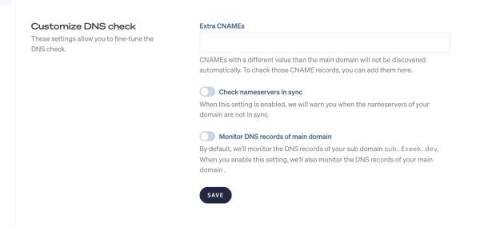Operations | Monitoring | ITSM | DevOps | Cloud
DNS
Forward and reverse DNS lookups: What they are, why you need them, and how to configure them
What is Dynamic DNS? How it works and how to set it up
DNS Security: Fortifying the Core of Internet Infrastructure
Why DNS Monitors Are Crucial for Your Infrastructure
What is a domain and how important is a domain name?
How to Fix the "DNS Server Not Responding" Error?
With the vast amount of data that is transmitted through the internet, it is essential to have a reliable connection. However, sometimes even the most stable connection can experience issues, one of which is the "DNS Server Not Responding" error. This error occurs when your device is unable to establish a connection with the DNS server, thereby depriving you of access to the internet.
Two smallish improvements to our DNS check
As you probably know, Oh Dear is run by a small but capable team. One of the advantages of being small is that we can implement stuff pretty quickly: there’s no red tape, and our code base is very healthy. So, when our users have feature requests that make sense to add to Oh Dear, we can move fast. In the past month, we implemented two smallish feature requests for our DNS check we got through support. Here’s what our new DNS settings screens look like.
How to Identify DNS Issues: The IT Handbook
Configuring Your DNS Server: A Step-by-Step Guide
The Domain Name System (DNS) is the backbone of the internet. Proper DNS configuration is essential for seamless internet connectivity and plays a central role in enhancing website performance. In this guide, we will explore DNS configuration and its importance and provide step-by-step instructions for configuring DNS servers on various platforms, as well as client settings.











